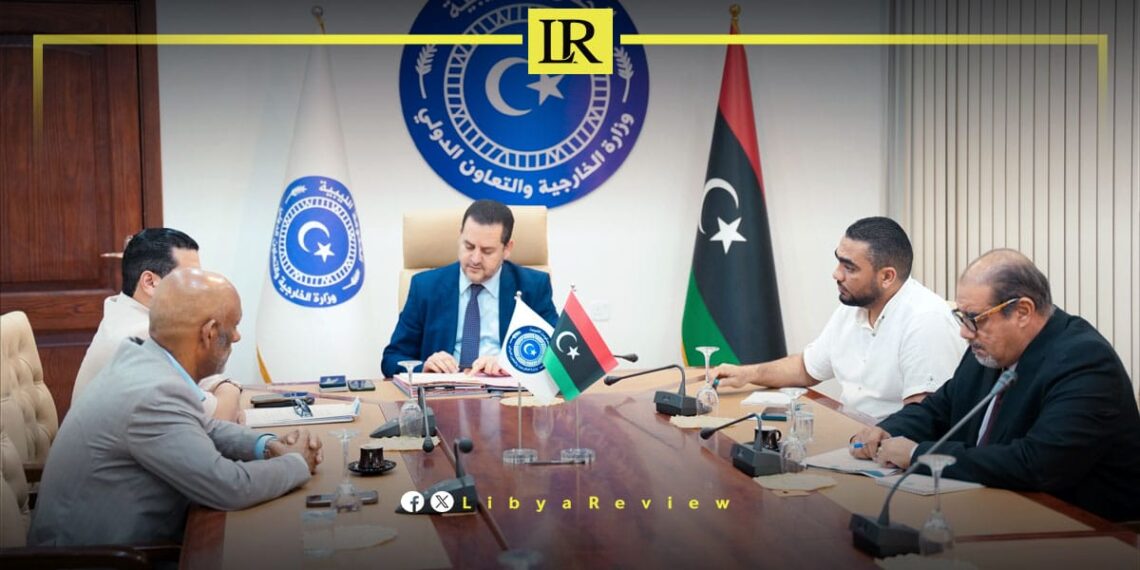Libya’s Minister of Foreign Affairs and International Cooperation, Dr. Abdelhadi Al-Hwaij, met with the Secretary-General of the Libyan Red Crescent, Marai Al-Dersi, at the ministry’s headquarters, in the presence of the ministry’s Director of Legal Affairs, Rafi Boujnah, and Director of the Civil Society Organizations Department, Jabr Al-Athram.
Al-Hwaij opened the meeting by praising the transparency of the recent electoral process held by the Libyan Red Crescent, stressing the importance of continuous coordination between national institutions and wishing success to the new leadership.
For his part, Al-Dersi presented an overview of the recently signed headquarters agreement, noting that it had been referred to the minister for approval. He also reviewed the history of the Libyan Red Crescent, established on October 5, 1957.
Al-Dersi proposed organizing an international conference on migration and international law under the sponsorship of the Ministry of Foreign Affairs. The talks also covered the ministry’s support for the Red Crescent’s bid to secure the position of Deputy Secretary-General of the African Union.
Both sides discussed ways to strengthen cooperation, including organizing diplomatic training courses for Libyan Red Crescent volunteers to enhance their skills and capabilities in humanitarian and international work.
Libya has been in chaos since a NATO-backed uprising toppled longtime leader Muammar Gaddafi in 2011. The county has for years been split between rival administrations.
Libya’s economy, heavily reliant on oil, has suffered due to the ongoing conflict. The instability has led to fluctuations in oil production and prices, impacting the global oil market and Libya’s economy.
The conflict has led to a significant humanitarian crisis in Libya, with thousands of people killed, and many more displaced. Migrants and refugees using Libya as a transit point to Europe have also faced dire conditions.
The planned elections for December 2021 were delayed due to disagreements over election laws and the eligibility of certain candidates. This delay has raised concerns about the feasibility of a peaceful political transition.
Despite the ceasefire, security remains a significant concern with sporadic fighting and the presence of mercenaries and foreign fighters. The unification of the military and the removal of foreign forces are crucial challenges.


